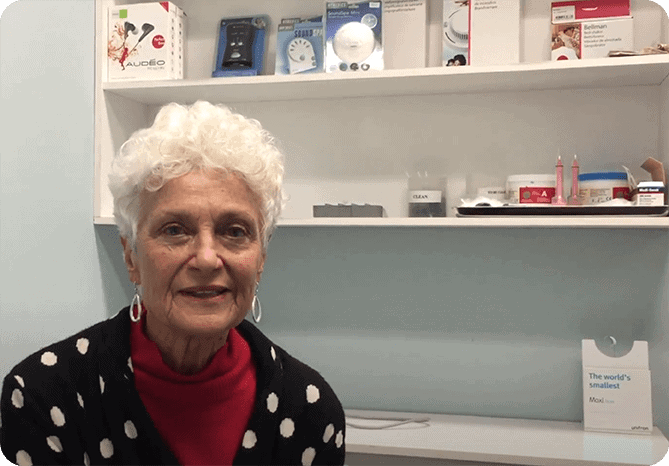Reputable Hearing Test Perth
Reliable Hearing Test
If you score more than 3 out of 12 on the test, it is recommended you see an audiologist, if you scored 2 or less but are still concerned about your hearing, we still recommend consulting an audiologist.
When was the last time you had a hearing test? Most people haven’t been screened since their school years, but it can become less sharp over time.
Many people wait until they experience a noticeable loss in hearing or encounter another issue like an ear infection before getting tested. But regular testing can help catch an issue before it becomes an impairment.
We’ve provided independent hearing services in Western Australia since 1985. All our clinicians are registered and members of many professional organizations. We can assess your ability to hear and recommend hearing aid options, or medical specialists.
Call us on (08) 9388 8003 today to learn more or schedule a test.
Services We Offer
We have a pediatric audiologist, Kerryn, who works at both of our Perth clinics. There are different tests for children of different ages. We will assess which method is most suitable for your child based on their capabilities.
Our tests aren’t confined to a “one size fits all” approach, but are carefully designed to match each individual. We assess the specific conditions of your ability to hear. Our clinics are located in Perth and Geraldton.
Who are these tests suitable for?
There’s no single sign that it’s time for the screening test. However, if you notice you’re struggling to hear like you used to, going for a test is a great idea. You’ll be able to uncover or rule out any issues and improve your quality of life by having the problem addressed.
Babies and young children are regularly checked as proper ability to hear can lead to proper development. This is crucial as children that show signs of hearing difficulty may go for more regular assessments or to a medical professional to rule out any underlying causes.
People who work in noisy environments for prolonged periods of time, such as factories or airports, may also be eligible for baseline testing and regular audiological tests. This can help preserve health as well as ensure proper compensation by programs like WorkCover if your ability to hear is damaged on the job.
If you want to learn more about hearing tests, check out our resources:
1. How Much Does A Hearing Test Cost
2. How to Choose the Best Place to Conduct a Hearing Test
3. Hearing Test vs Hearing Screening
4. Signs You Need a Hearing Test
What are the benefits?
- Improved quality of interactions
- Diagnosis of related health issues
- Enhanced safety and responsiveness
- Prevention of worsening conditions
- Increased personal confidence
What different types of tests are available?
Your audiologist will administer the hearing test that is best for your situation. However, there are a few standard types.
- Tinnitus assessments for ringing in the ears
- Pure tone testing for pitch and frequency
- Bone conduction testing for blockages
- Acoustic reflex testing for neural pathway assessment
- Acoustic noise testing after exposure to loud sounds
- Hyperacusis testing for noise sensitivity
How long does this type of test take?
How much does this test cost in Perth?
On average, you can expect a hearing test to cost between $100 to $180, and it normally takes about 45 minutes and a full diagnostic report is sent to your GP or specialist.
Medicare rebates are available for children and adult testing with a referral. Fully subsidised testing is provided for eligible permissions and veterans.
Why Choose Us
We are your local specialists for everything from testing to hearing aids. We use state of the art technology and hearing products to help our customers improve their quality of life. To support the community, we provide free and government-subsidised services for pensioners and veterans.
Frequently Asked Questions About Perth Hearing Tests
Do hearing loss screening tests hurt?
Our audiologist will test your ability to detect sounds in each ear at different frequencies, tones, volumes, and lengths. You might find some of the bells or beeps a bit repetitive after a while, but since this test does not last long, you don’t have to worry. They may also look in your ear using an otoscope, but this is a non-invasive check and takes just a few seconds.
What are the signs I might need the test?
Regular testing and prevention are the best methods. But if you run into any of these signs, you may want to ring up an audiologist.
- Difficult ability to hear among background noise
- Ringing sensations or sounds in your ears
- Feedback from others that you talk too loud
- Frequently turning up the volume on devices
- Asking people to repeat themselves in conversation
How often should I have my ability to hear tested?
It’s recommended to have your ability to hear checked regularly, at least once yearly. This can help catch any issues as they crop up. If you work in a noisy environment, your employer or union may mandate regular testing to ensure your safety and health. Anyone already aware of the issues should have regular testing done as recommended by their audiologist or GP to track changes.
Is hearing loss just a problem for the elderly?
Not at all. One in six Australians struggle with hearing loss, half of whom are between the ages of 16-65. With less emphasis on the ability to hear as part of comprehensive health, many people go without treatment or realise that their ability to hear is diminishing over time until it reaches worsening levels. These issues can lead to interpersonal, communication, well-being, and employment issues. This makes it important for everyone, even the young or those with no prior history of trouble hearing, to go for regular hearing tests.
Book An Appointment




